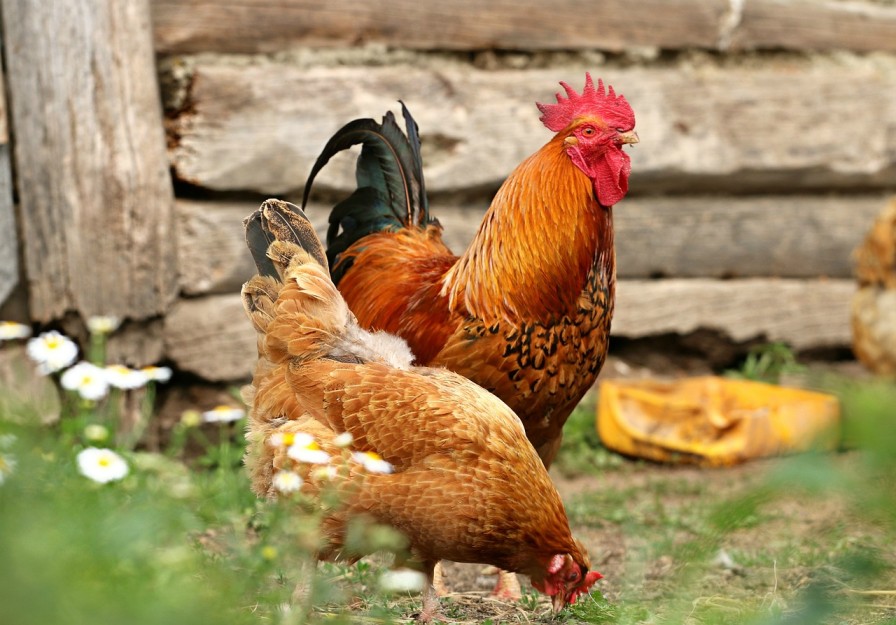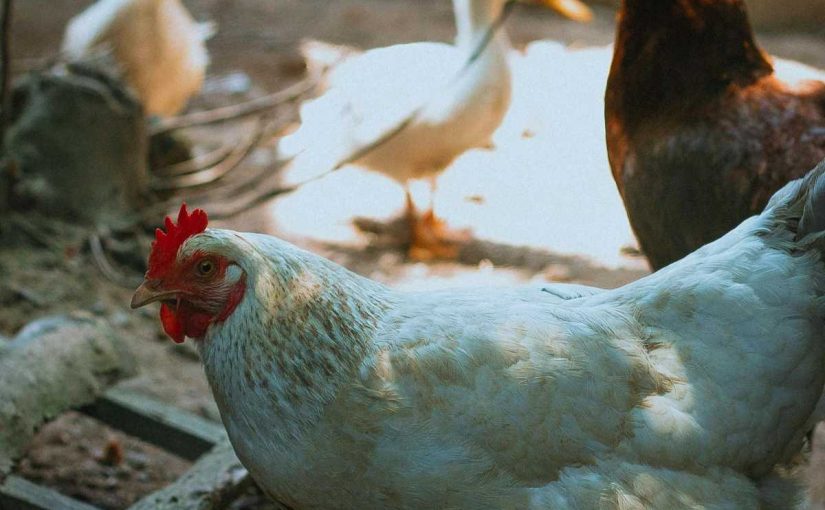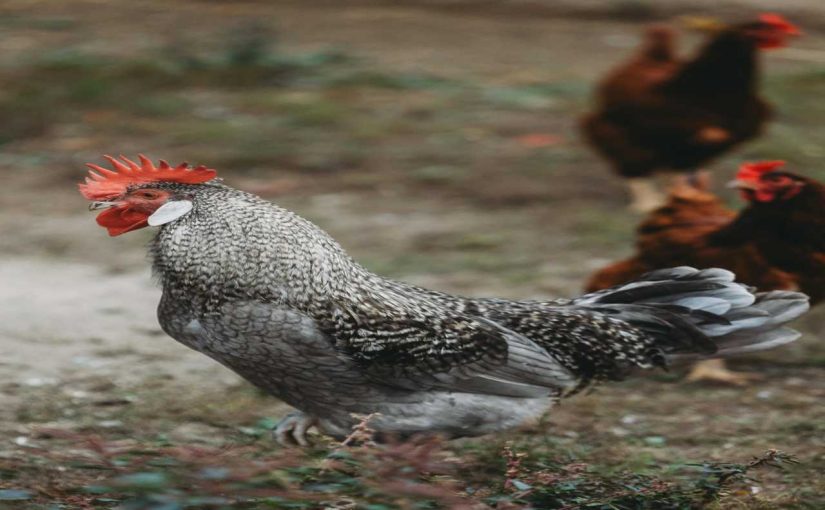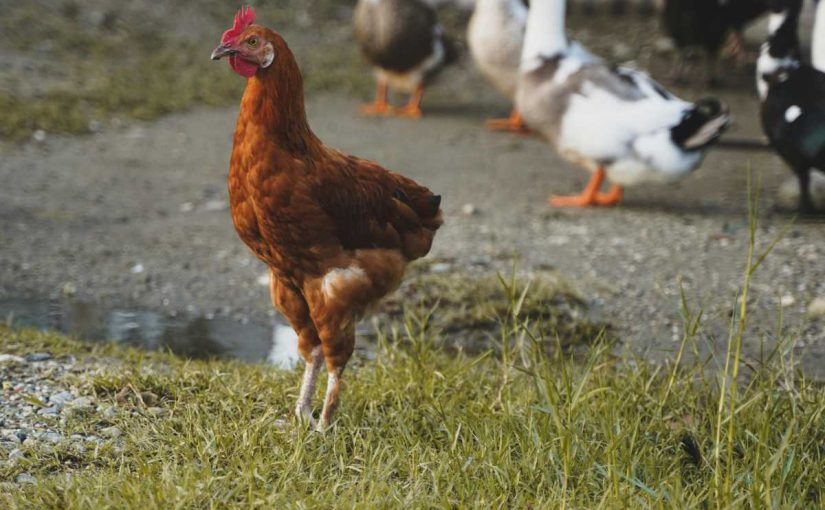Integrating chickens into your permaculture system can significantly enhance sustainability, productivity, and biodiversity. Chickens are not only valuable for their eggs and meat but also provide various ecological benefits that align perfectly with permaculture principles. Here are the top five benefits of incorporating chickens into your permaculture setup, along with practical tips and insights.
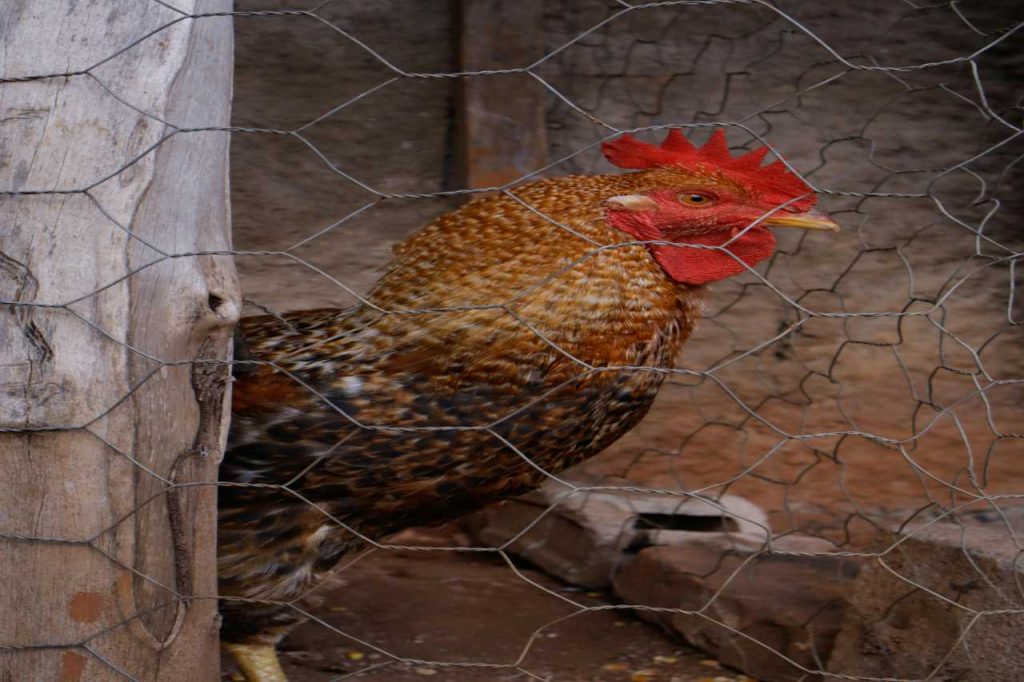
1. Natural Pest Control
Chickens are natural foragers and love to eat insects, pests, and larvae. By allowing chickens to roam in your garden or around your permaculture area, you can effectively reduce pest populations without the need for chemical pesticides.
How Chickens Help:
- Insect Control: Chickens will scratch and peck at the ground, unearthing and consuming various pests, including beetles, caterpillars, and slugs. Their foraging behavior helps keep pest numbers in check and reduces the likelihood of crop damage.
- Healthy Soil: As chickens forage, they aerate the soil, promoting healthy plant growth and improving soil structure. Their scratching behavior can also help incorporate organic matter into the soil, enhancing its fertility.
Additional Tips:
- Rotational Grazing: Implement a rotational grazing system where chickens are moved to different areas of the garden. This not only prevents overgrazing but also allows for targeted pest control in specific areas.
- Chicken Tractors: Consider using movable chicken coops, known as chicken tractors. These can be relocated regularly to give chickens access to fresh ground while fertilizing and controlling pests in previously used areas.
- Companion Planting: Combine chicken foraging with companion planting strategies. For example, planting marigolds or nasturtiums can help attract beneficial insects, further enhancing pest control while providing additional forage for your chickens.
2. Soil Fertility and Enrichment
Chickens contribute significantly to soil fertility through their droppings, which are rich in nitrogen and other nutrients. Their manure can enhance soil health, promoting healthy plant growth.
Benefits to Soil:
- Nutrient-Rich Fertilizer: Chicken manure is a potent organic fertilizer that can be used to enrich your compost or applied directly to garden beds. It contains essential nutrients, including nitrogen, phosphorus, and potassium, necessary for robust plant growth.
- Microbial Activity: Chicken droppings support beneficial microbial activity in the soil, leading to improved soil structure and increased nutrient availability for plants. Healthy soil microbiomes are essential for nutrient cycling and plant health.
Practical Application:
- Composting Chicken Manure: Compost chicken manure with carbon-rich materials (like straw or wood chips) to create a balanced compost that enriches your garden beds. Aim for a compost mix of roughly 3 parts carbon materials to 1 part chicken manure to maintain an optimal carbon-to-nitrogen ratio.
- Direct Application: If you’re applying chicken manure directly to the garden, ensure it’s aged or composted first to prevent nitrogen burn on plants. Aged manure can be mixed into the soil before planting.
- Soil Testing: Conduct soil tests regularly to monitor nutrient levels. This allows you to adjust your chicken manure application based on the specific needs of your plants, ensuring optimal growth and yield.
3. Biodiversity Enhancement
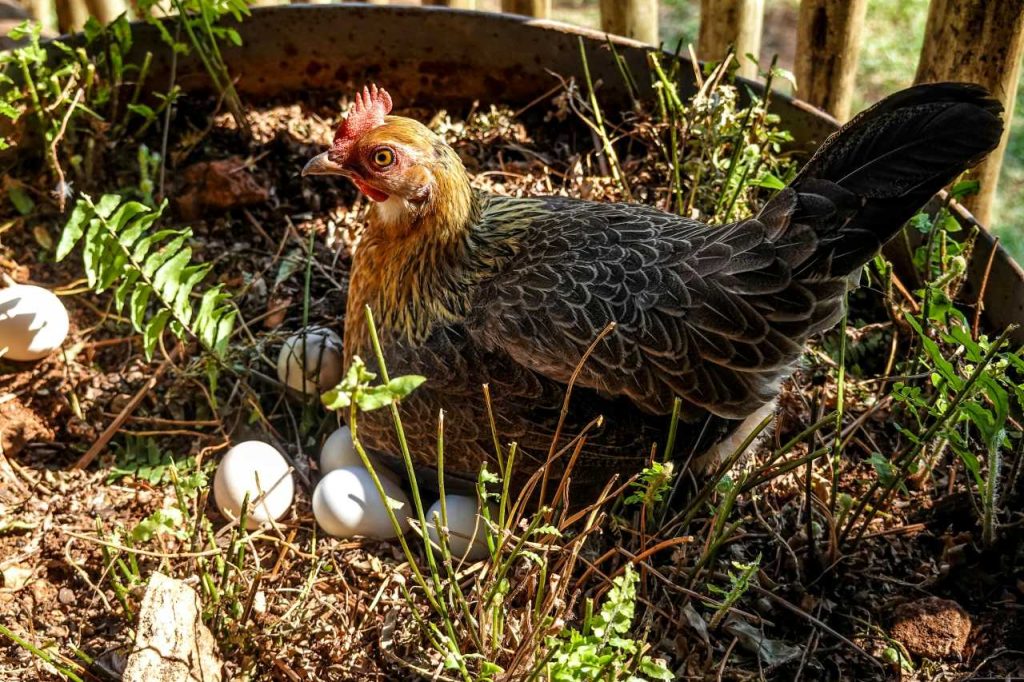
Integrating chickens into your permaculture system helps promote biodiversity by supporting various ecological interactions. Chickens can coexist with other plants and animals, creating a balanced ecosystem.
Promoting Biodiversity:
- Plant Health: Chickens help control weeds by scratching and eating weed seeds, reducing competition for desired plants. By keeping weed growth in check, chickens can help increase the overall productivity of your garden.
- Wildlife Support: A diverse ecosystem attracts beneficial insects, birds, and other wildlife, contributing to a healthy permaculture environment. Chickens can coexist with pollinators and other small animals, fostering an integrated ecosystem.
Implementation Strategies:
- Diverse Plantings: Create diverse plantings around chicken areas, such as herbs and flowers, to attract pollinators and beneficial insects while providing chickens with additional forage. Plants like clover and dandelion are excellent for chickens and help improve soil health.
- Shelter and Habitats: Incorporate natural shelters like shrubs, bushes, or trees in your chicken area. These provide shade and protection for chickens while creating habitats for other wildlife.
- Intercropping: Use intercropping strategies to enhance biodiversity. Plant crops that complement each other, such as planting corn alongside beans and squash, while allowing chickens to forage and contribute to soil health.
4. Food Production and Sustainability
Chickens provide a sustainable source of food through egg and meat production. By integrating them into your permaculture system, you can create a closed-loop food production system.
Food Production Benefits:
- Eggs and Meat: Fresh eggs and meat from your chickens contribute to your food security and reduce reliance on store-bought products. Home-raised chickens often produce eggs with richer flavors and higher nutritional value.
- Self-Sufficiency: By raising your chickens, you can create a self-sustaining food source, reducing your environmental footprint. The practice promotes independence from industrial food systems and fosters a more sustainable lifestyle.
Tips for Maximizing Food Production:
- Dual-Purpose Breeds: Select dual-purpose chicken breeds that are good for both egg-laying and meat production, allowing you to optimize your food output. Breeds like Rhode Island Reds and Plymouth Rocks are excellent choices for both eggs and meat.
- Seasonal Management: Plan your chicken management practices according to the seasons. For instance, adjusting feeding practices during winter can help maintain egg production while ensuring chickens remain healthy.
- Integration with Other Livestock: Consider integrating chickens with other livestock in your permaculture system. For example, letting chickens forage in the same area as goats or pigs can help maintain clean spaces while providing additional benefits.
5. Educational Opportunities
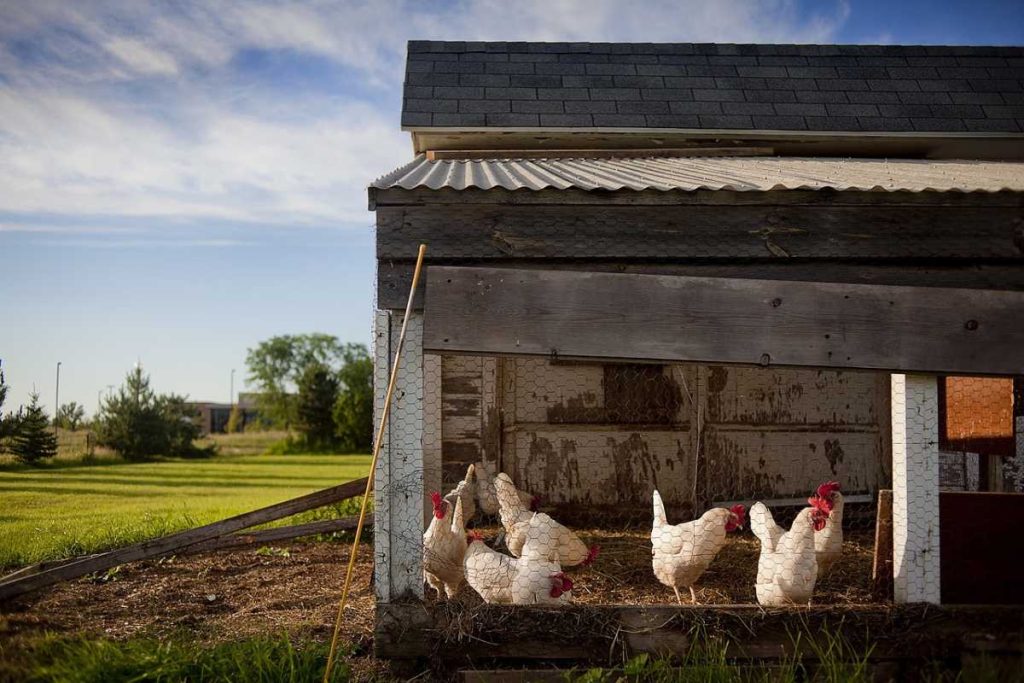
Integrating chickens into your permaculture system provides valuable educational experiences for families and communities. Chickens can teach important lessons about ecology, responsibility, and sustainable living.
Learning Opportunities:
- Hands-On Learning: Caring for chickens allows individuals, especially children, to learn about animal husbandry, responsibility, and the food production process. Children can gain practical skills and knowledge about where their food comes from.
- Community Engagement: Establishing a community garden or educational program that includes chickens can foster connections and promote sustainable practices among neighbors. Community initiatives can encourage collaboration and shared learning.
Community Initiatives:
- Workshops and Classes: Organize workshops or community events to share knowledge about raising chickens and integrating them into permaculture systems. Topics can range from basic care to advanced permaculture principles.
- School Programs: Collaborate with local schools to implement educational programs that involve chickens. This can include field trips to farms, hands-on learning experiences, and integrating chicken care into school curricula.
- Resource Sharing: Create a resource-sharing network among local chicken keepers to exchange tips, resources, and support. This can enhance community engagement and knowledge sharing.
Conclusion: Embracing Chickens in Your Permaculture System
Integrating chickens into your permaculture system offers numerous benefits that enhance sustainability, productivity, and biodiversity. From natural pest control and soil enrichment to food production and educational opportunities, chickens play a vital role in creating a balanced and thriving ecosystem.
By embracing chickens in your permaculture practices, you not only support your garden’s health but also contribute to a more sustainable and resilient food system. Chickens serve as a living, dynamic resource that enriches your permaculture experience, creating a harmonious relationship between people, animals, and the environment.

